
When I was four, I had just arrived in Amsterdam with my parents, escaping Berlin after Hitler came to power and fired my father, a deputy cabinet member in the Prussian government during the Weimar Republic. One day, not long after our arrival, I walked hand in hand with my mother to a local grocery. There, my mother noticed another woman talking in German to her dark-eyed daughter, who was about my age. The two mothers spoke briefly to one another, smiling, clearly relieved to find some familiarity in this foreign place.
I was a shy child and I clung to my mother’s leg, unused to other children but curious about the little girl looking back at me.
She was to be my very first friend. A childhood playmate, neighbour and school friend. Our families became close as they navigated life as refugees in a new city, sharing their fears as the war, occupation and all that would mean for us moved inexorably closer.
That little girl, so full of life, would become the most famous victim of the Holocaust. A symbol, in many ways, of all the hope and promise that was lost to hatred and murder. Talking about her story, our story, would later become a thread that bound me to her and kept our friendship alive long after she was gone. But from when we first met to when she abruptly disappeared from my life, not long before my 14th birthday, to reappear fleetingly in the strangest and most tragic of ways, she was simply my friend, Anne Frank.
Diese Geschichte stammt aus der July 2023-Ausgabe von The Australian Women's Weekly.
Starten Sie Ihre 7-tägige kostenlose Testversion von Magzter GOLD, um auf Tausende kuratierte Premium-Storys sowie über 8.000 Zeitschriften und Zeitungen zuzugreifen.
Bereits Abonnent ? Anmelden
Diese Geschichte stammt aus der July 2023-Ausgabe von The Australian Women's Weekly.
Starten Sie Ihre 7-tägige kostenlose Testversion von Magzter GOLD, um auf Tausende kuratierte Premium-Storys sowie über 8.000 Zeitschriften und Zeitungen zuzugreifen.
Bereits Abonnent? Anmelden
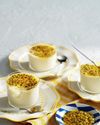
Maggie's kitchen
Maggie Beer's delicious veg patties - perfect for lunch, dinner or a snack - plus a simple nostalgic pudding with fresh passionfruit.

Reclaim your brain
Attention span short? Thoughts foggy? Memory full of gaps? Brigid Moss investigates the latest ways to sharpen your thinking.
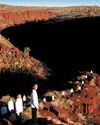
The girls from Oz
Melbourne music teacher Judith Curphey challenged the patriarchy when she started Australia's first all-girls choir. Forty years later that bold vision has 6500 members, life-changing programs and a new branch of the sisterhood in Singapore.
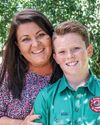
One kid can change the world
In 2018, 10-year-old Jack Berne started A Fiver for a Farmer to raise funds for drought relief. He and mum Prue share what happened next.
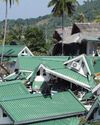
AFTER THE WAVE
Twenty years ago, the Boxing Day tsunami tore across the Indian Ocean, shredding towns, villages and holiday resorts, and killing hundreds of thousands of people from Indonesia to Africa. Three Australians share their memories of terror, loss and survival with The Weekly.
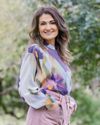
PATRICIA KARVELAS How childhood tragedy shaped me
Patricia Karvelas hustled hard to chase her dreams, but it wasn't easy. In a deeply personal interview, the ABC host talks about family loss, finding love, battles fought and motherhood.
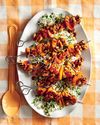
Ripe for the picking
Buy a kilo or two of fresh Australian apricots because they're at their peak sweetness now and take inspiration from our lush recipe ideas that showcase this divine stone fruit.
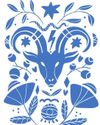
Your stars for 2025
The Weekly’s astrologer, Lilith Rocha, reveals what’s in store for your astrological sign in 2025. For your monthly horoscope, turn to page 192.
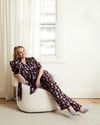
MEL SCHILLING Cancer made me look at myself differently'
One year on from going public with her bowel cancer diagnosis, Mel Schilling reveals where she's at with her health journey and how it's changed her irrevocably.
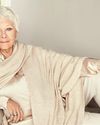
Nothing like this Dame Judi
A few weeks before her 90th birthday, the acting legend jumped on a phone call with The Weekly to talk about her extraordinary life – and what’s still to come.